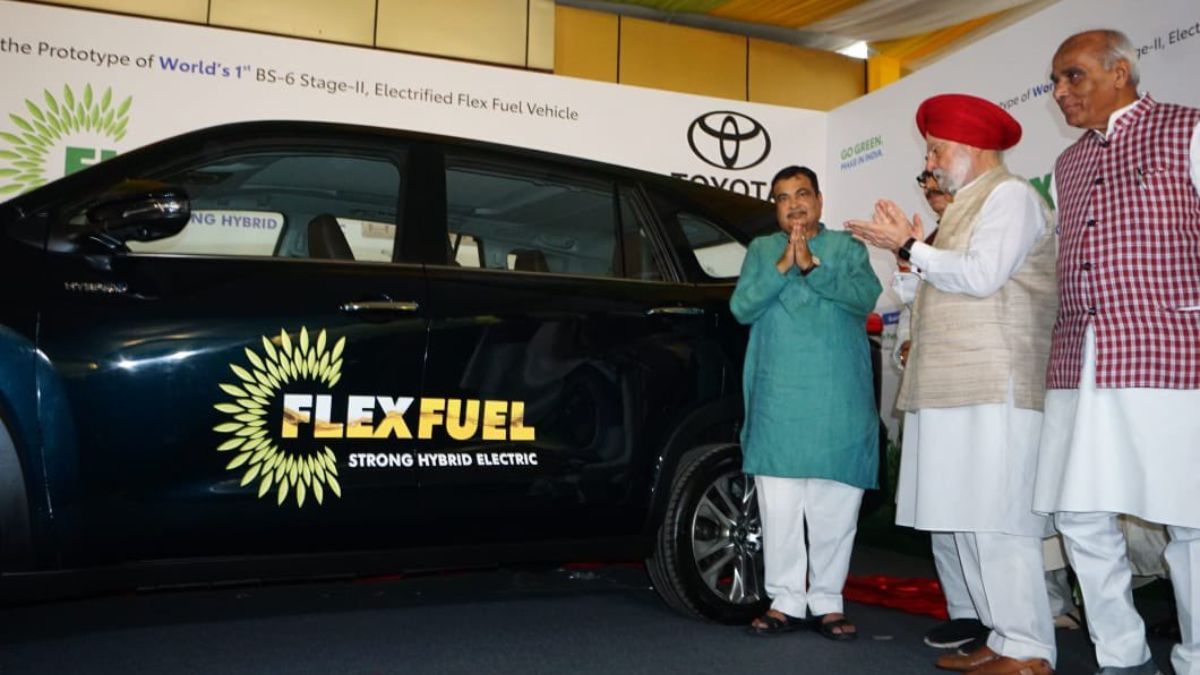- By Divanshi Sharma
- Wed, 20 Dec 2023 08:00 PM (IST)
- Source:JND
Year Ender 2023: India’s automotive industry has witnessed rapid evolution throughout 2023 as we have all seen the rise of more battery-powered vehicles in the country. The Indian government has been pushing for cleaner fuel alternatives than conventional fuels because of various reasons such as increasing fuel prices and increased awareness towards sustainability and climate change. Apart from the transition towards EVs, the government has also been promoting the usage of other fuel alternatives such as hydrogen-powered, CBG-powered and ethanol-powered vehicles. These fuel alternatives can help India achieve its decarbonisation goals and meet the growing demand for clean energy. Major factors attributed behind this drastic transition are -
Rising Fuel Prices
A significant factor that has incited this transition is ever-increasing fuel prices in the country. Currently, petrol and diesel prices are at an all time high not just in India but globally. The primary reason behind this surge in fuel prices can be attributed to increasing crude oil prices which has then resulted in increased refined oil prices like - petrol and diesel. Crude oil prices have seen a significant rise because of the ongoing Russia-Ukraine war as Russia is among the top suppliers of crude oil globally.
ALSO READ: Volkswagen To Adopt Tesla’s North American Charging Standard, Aims To Open 15,000 Charging Stations
Push Towards Cleaner And Greener Environment
Another important factor that is critical in this transition is the global awareness towards a more sustainable future and cleaner environment. The Indian government has also been increasing awareness towards climate change and promoting reduced carbon emissions to accomplish the Sustainable Development Goals (SDG) by 2030.
Environmental Impact Of EV Batteries
Another factor fuelling this shift is the environmental concerns related to the battery production in EVs. These batteries are made up of complex parts that include rare earth elements such as lithium, nickel, cobalt, and graphite. These materials are not easy to source and extracting them involves extensive mining, which can be harmful to the environment. The process of separating these elements from the soil can also be polluting. Therefore, cars powered by alternative fuels such as hydrogen and ethanol are a more viable alternative.
ALSO READ: Hyundai Joins Other Global Automakers To Sell Russian Assets Amid Suspended Operations Due To Ukraine War\
Advancement Made In 2023
The Indian government has been actively promoting the usage of more feasible fuel alternatives such as hydrogen-powered, CBG-powered and ethanol-powered engines. The country saw remarkable progress in 2023 as various manufacturers introduced different models such as India’s first flex-fuel vehicle, Toyota Innova Hycross which was officially unveiled by Nitin Gadkari, Union Minister for Road, Transport and Highways. Similarly, Suzuki introduced the hydrogen-fueled Burgman concept, CBG-powered Maruti Suzuki WagonR and MG’s first hydrogen fuel cell MPV and Kawasaki’s hydrogen powered sport bike concept which was revealed a few days ago. In addition to this, the Indian government also launched the First Green Hydrogen Fuel Cell Bus in Delhi and Ladakh in August 2023.

